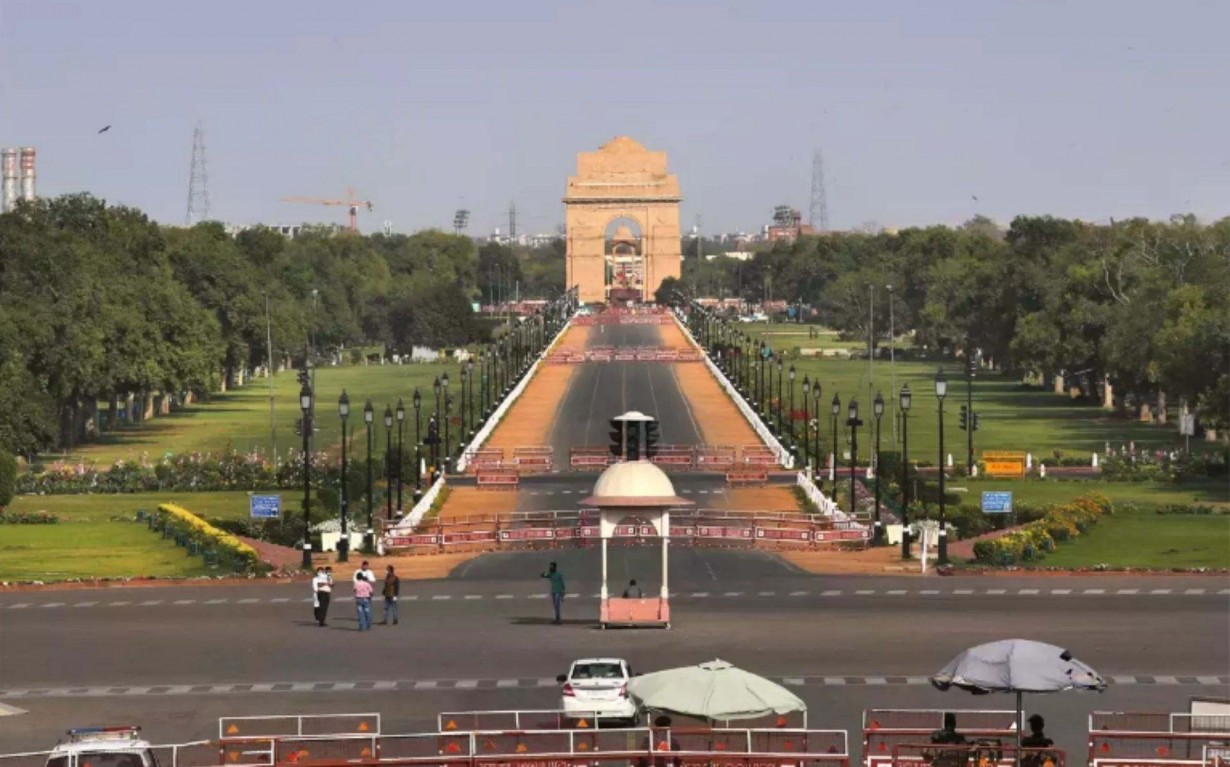Shifting to a green economy can generate 3 million jobs in the renewable energy sector by 2030
Creating green jobs could help address both unemployment and environmental degradation in Delhi. 8,000 to 10,000 green jobs have been opening up each year for the past 10 years.
These are not just in purely green businesses such as green buildings, renewable energy, energy efficiency and carbon consultancies, but also in big companies like Ambuja Cement which have launched green initiatives.
DELHI CHOKING BY AIR POLLUTION
In 2019, Delhi was the most polluted city in the world in terms of air quality. The most prominent environmental issue faced today in Delhi is Air Pollution.
In Delhi, poor air quality irreversibly has damaged the lungs of 2.2 million, which makes for 50% of all children.
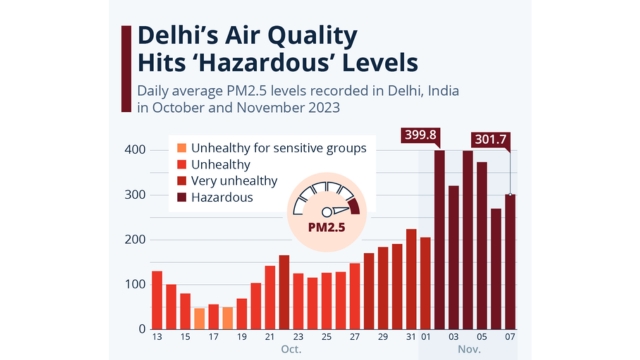
- Delhi’s carbon emission
It is not surprising to know that Delhi has the highest carbon footprint in the country. In fact, Delhi’s annual CO2 emission of 69.4 million tonnes is equal to the C02 emissions of Bangalore, Hyderabad, and Chennai combined.
- Burning garbage and fires from agricultural land
10% of the Delhi households use wood, coal, cow dung, and crop residue for cooking. Almost 50% of Delhi’s pollution is from crop burning.
The number of harmful gases like methane emitted at Bhalswa and Ghazipur landfill fires is 3845.20 Gigagrams/year, and 77.42 Gigagrams/year respectively.
Garbage burning at Bhalswa Landfill (Times of India)
- Illegal industrial activities
The Badarpur Thermal Power Station produces less than 8% of the electricity in Delhi and in contrary produces 80-90% of the particulate matter pollution. it has been permanently shut in view of its detrimental effects on the environment.
Emissions from The Badarpur Thermal Power Station (Deccan Herald)
The drift/mist emissions from wet cooling towers (buildings where the water that was heated by industrial or power generation processes is cooled) also contribute to the particulate matter pollution in Delhi.
Such environmental issues are a major threat to the well-being of inhabitants as well as flora and fauna of this city.
CAN ENVIRONMENTAL EDUCATION AND SUSTAINABILITY SAVE DELHI?
Education plays a major role in the required transformation into a more environmentally sustainable society. A 2016 UNESCO report titled ‘Education for people and planet’ considers environmental education as one of the tools for dealing with the environmental crisis.

Environmental Education for sustainable development promotes the development of the knowledge, skills, understanding, values and actions required to create a sustainable world, which ensures environmental protection and conservation, promotes social equity and encourages economic sustainability.
ENVIRONMENTAL EDUCATION BENEFITS THE LARGER WORLD BY:
- Fostering Knowledge and awareness: Environmental education ensures citizens are informed about the environment and equipped to make decisions that are critical to lead the way in creating greener and healthier ways of living
- Contributing to Sustainability: Environmental education builds the knowledge and skills needed to address complex environmental issues, as well as take action to keep our natural world healthy, our economies productive, and communities vibrant.
- Conserving our Natural Resources: Higher levels of environmental knowledge correlate significantly with a higher degree of pro-environment and conservation behavior. The more people know, the more likely they are to recycle, be energy efficient, conserve water, etc.
- Assisting the government to meet its objectives: The overall objective of any government is to protect both its citizens as well as their property. This similarly includes protecting the environment in which the people live in. The environmental education programs can go a long way in supporting the government’s efforts to safeguard the environment.
Overall, Environmental education does not advocate a particular viewpoint regarding an environmental issue. Rather, it teaches students and professionals to analyze different sides of an issue and combat it with their critical thinking and problem-solving skills.
Environmental Education is a tool to make this world a better place to live in.
ENVIRONMENT EDUCATION FOR PROFESSIONALS
In concern for the environment, CSR (Corporate Social Responsibility) in India includes environmental sustainability, ecological balance, conservation of natural resources, protection of flora and fauna and pollution control.
Many companies are taking initiative towards Environmental Education and Sustainable Development. For instance,
- Toyota Industries is focused on increasing the environmental awareness of its employees through training, company-sponsored seminars and company magazine. The company believes that greater environmental awareness amongst employees is a critical component of environmental management.
UPCOMING GREEN JOBS IN DELHI
About 24 million jobs could be created by transitioning to a ‘circular economy’
- Energy sector
Employment opportunities in India’s renewable sector is going to double by 2020. The Council on Earth Environment and Water and The National Development Corporation projects can create 58,000 green job opportunities by the year 2020. If 40% of India’s electricity comes from renewable energy by 2030, 3 million new jobs could be added to the sector, according to a study by International Labor Organization (ILO).
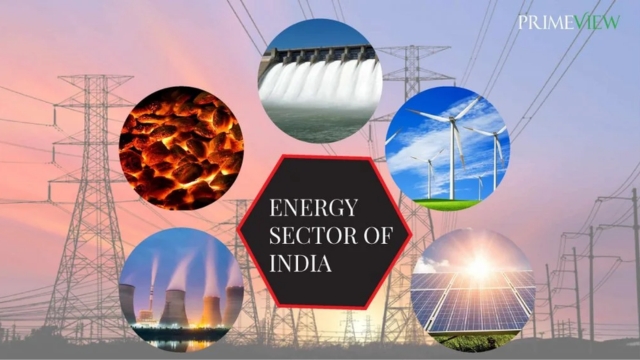
- Tourism
Ecotourism or sustainable tourism is a rising trend. This sector creates job opportunities such as designing adventure experiences, high mountain trails and discovery of protected areas as well as renewal of rural areas at the risk of disappearance.
- Travel
Delhi Electric Vehicle Policy with an aim to make Delhi a leader in adoption of electric vehicles and going electric and breathing better are two sides of the same coin. The policy will also seek to promote large scale job creation in driving, selling, financing, servicing and charging of electric vehicles.
- Urban Farming
Urban forestry and roof-top gardening are rapidly becoming a trend in India’s cities and this can not only enable local production of vegetables but also help reduce the heat-island effect (urban areas that are heater than the surroundings).
An increase in urban farming practices can help generate jobs in permaculture, gardening and nursery management, and soil and nutrient supply.
- Waste Management
Solid waste management is an enormous issue in Delhi. This sector can create a huge number of job opportunities in future.
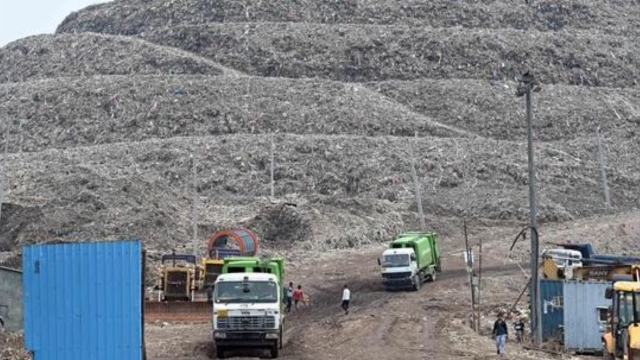
- Agriculture
Organic farming culture is growing around the world. It has an excellent potential in future.
COURSES TO UNDERSTAND SUSTAINABLE PRACTICES
Many institutes are offering an array of courses on environmental and sustainability topics. A better understanding of these topics is sure to help everyone from any sector. Some of these Certificate courses you might be interested in are,
A self-paced online course, which explores frameworks and tools needed to promote sustainability. It is a 3-day course on how you can become a change agent through transformative leadership and design thinking.
The course explores the different business models that companies can use to drive change and explains why purpose-driven businesses are particularly well-positioned to tackle the world’s biggest problems including environmental problems and climate change
This course looks at where important materials in products we use every day come from and how these materials can be used more efficiently, longer, and in closed loops. The course also teaches skills and tools for analyzing circular business models in the transition to a Circular Economy.
Earth5R Institute of Social and Environmental Sustainability (EISES) offers certificate courses on Global Sustainability and Climate Change. The program blends online and offline learning (within 3 km of your location) with the ongoing projects. Students receive one-to-one learning and experience which offers great flexibility.
The course covers topics like Circular Economy, Social Entrepreneurship, Climate Change Mitigation Facilities, and more.
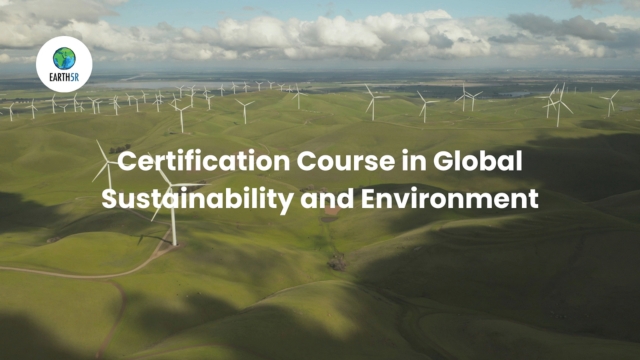
Earth5R is committed to driving change by acting, but also by sharing information and spreading awareness on sustainability issues. The team conducts awareness programs around local sustainable issues: Solid waste, Poverty, Pollution, Water shortage, and Deforestation.
ACT: EARTH5R MODEL
ACT (Action, Collaboration and Transformation), an ambitious model developed by Earth5R which aims to make India sustainable by engaging citizens, volunteers, marginalized communities, governments, and corporate into a comprehensive sustainable development program.
The ACT Model is based on four pillars: Sustainable Ecosystems, Sustainable Buildings, Sustainable Communities, and Sustainable Businesses.
The objective is to educate citizens on tangible actions they can take to become the drivers of change.
Reach out to Earth5R to know more about solving environmental issues by creating circular economy based sustainability projects.
Earth5R is an environmental organization from India with its head office at Mumbai. It works with the NGO sector, Companies and helps them conduct environmental corporate social responsibility (CSR) programs across India. Earth5R specializes in circular economy based projects. Earth5R also offers short term and long term environmental courses.
Earth5R’s Global Sustainability Hub is a cross-sector and cross-country collaboration in pursuit of UN Sustainable Development Goals. It is an excellent opportunity for governments and the private sector to engage with communities, use Sustainability-based models to drive economic changes, and create social and environmental impact.
Reported by Harsha Nath, Edited by Mehfil Mubarak

